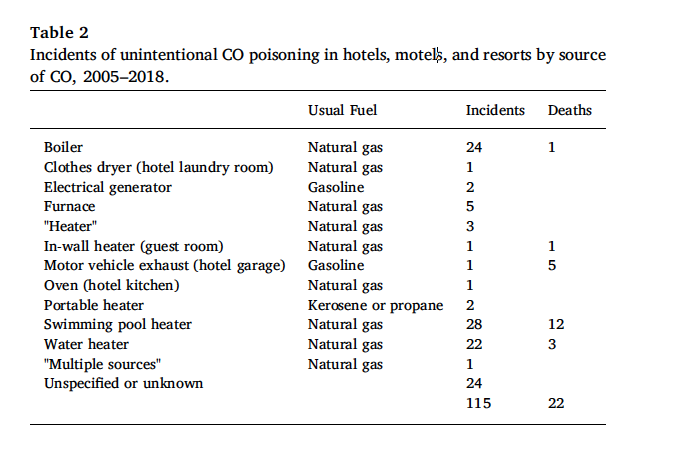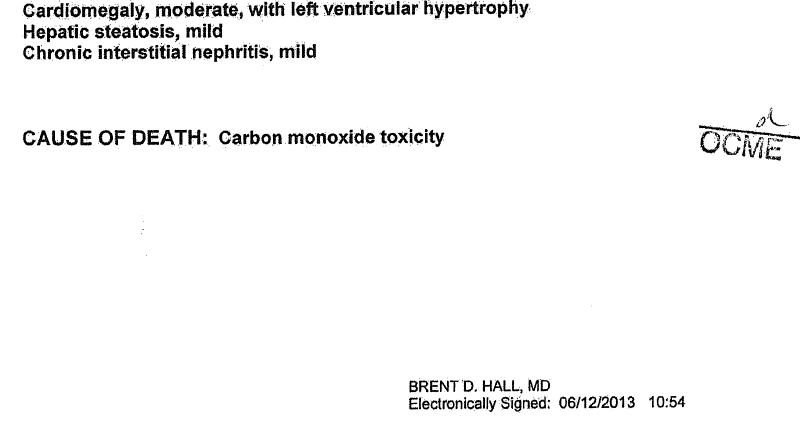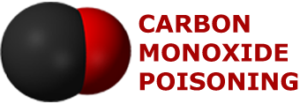Hotel Pool Heaters Cause Carbon Monoxide Poisoning
Why are hotel pool heaters so dangerous for carbon monoxide poisoning? The answer is probably is as simple as they have the same danger of incomplete combustion as any other fuel burning appliance, but they get forgotten in the routine maintenance process. Hotel pool heaters use natural gas to heat water, like any other hot water heater or boiler elsewhere in the hotel. But hotel pool heaters are probably not located in the mechanical equipment room of the hotel, but near the pool. Thus, system checks and preventative maintenance that gets done elsewhere, may not get done on these heaters.
For our general topic of carbon monoxide poisoning in hotels, click here.
For lawsuits involving hotel carbon monoxide poisoning, click here.
For about Attorney Gordon Johnson’s successes in carbon monoxide case, click here.
Hotel Pool Heaters are Common Cause of Carbon Monoxide Fatalities
Almost every year there is a case of people dying in a hotel because the hotel pool heater malfunctioned. See https://www.sciencedirect.com/science/article/pii/S2211335519301469?via%3Dihub

Leading the list of carbon monoxide fatalities in hotels are hotel pool heaters. This chart taken from the Hampson article, shows more deaths from hotel pool heaters than any other cause. Hampson, Preventive Medicine Reports 16 (2019) 100975.
Almost every year there are instances of people dying in a hotel room because the hotel pool heater malfunctioned or was improperly installed or maintained. Pools have been an enormous draw for guests over the years. We all know what a room “poolside” means. What happens when that coveted poolside room turns deadly? And consequently, what happens when initial investigations fail, and the danger is not detected nor addressed and fatalities continue? This is the story of one of the most infamous cases of pool heater carbon monoxide poisoning which occurred at the Best Western hotel in Boone, NC in 2013. This story speaks to a multitude of failures to act at every step.
This story speaks to a multitude of failures to act at every step.
Disclaimer: The Brain Injury Law Group, Attorney Gordon Johnson, were not involved in the litigation against the Best Western hotel in Boone. Other law firms represented the families of these two fatal carbon monoxide poisonings. Attorney Johnson did consult with other survivors of this carbon monoxide exposure who chose not to bring litigation.
Installation of Used and Worn Equipment in Hotel Pool Heaters
Let us begin at the beginning when plans were made to move a pool heater system from a Sleep Inn to the Best Western to replace an old system. In 2011 a used Jandy Lite 2 pool heating system was installed at the Best Western. No place is more dangerous than a hotel for carbon monoxide poisoning, not only because there can be so many people exposed to a CO leak, but people are often sleeping when the exposure happens. Thus, if there is a leak, there is a high likelihood of a fatality, since people may never wake up to realize they are being poisoned. A used and worn HVAC pool heater should never have been used to heat this pool.
Use of Unlicensed Personnel To Install Pool Heater
Damon Mallatere was then head of operations at the Best Western. As president of Appalachian Hospitality Management, Mallatere headed operations at several AHM locations. At Mallatere’s direction, hotel employees rather than licensed HVAC professionals were instructed to do the work of moving the pool heater from one hotel to another. An Macro analysis of carbon monoxide poisonings will find that the use of unlicensed and untrained personnel is often the cause of the CO leak. While the principles of combustion are easy to explain, assuring the proper venting and exhausting of larger scale appliances gets exponentially more complicated when a large building is involved. Further, the larger the building, the more people who are at risk for mistakes and malfunctions. Unqualified individuals should never touch a commercial HVAC system.
No Permit Issued for Installation of the Pool Heater
North Carolina State law requires a permit for this type of installation with the accompanying inspections. That would certainly apply to a hotel pool heater. But no permit was obtained and the work was carried out regardless of North Carolina Code violations. The reason there are permit requirements for HVAC work at hotels is because of the risk of severe consequences when there is a CO exposure where large numbers of people sleep.
Failure to Follow Manufacturer’s Instructions
One would presume that such work would at least then follow the instructions in the Jandy Lite 2 manual. Instead we encounter a list of blatant violations of recommendations for the installation of this pool heater system.
Some of the installation recommendations for this system had very specific instructions for ventilation systems it would connect to. Extensive spans of horizontal vent pipes were to be avoided and the ventilation exhaust placed above the hotel’s exterior. Neither one of these recommendations were met. In fact the ventilation system would eventually receive close scrutiny and fail in every aspect.
Other recommendations involved the actual pool heater housing. Due to the corrosive nature of pool chemicals, it was pointedly recommended that pool chemicals be stored separately from any of the actual mechanics of the pool heater and its venting system to avoid excessive corrosion which could lead to failure to contain carbon monoxide.
Improper Conversion from Propane to Natural Gas
And then we come to very specific warnings regarding this system. First and foremost, the propane run hotel pool heater Jandy system was not to be converted to any other type of combustible. Propane and natural gas have different octane. Propane burns hotter than natural gas and requires less fuel for the amount of oxygen to be burned. If the fuel gas mix isn’t right, the flame will either not stay lit, or there will be too much fuel, guaranteeing large amounts of carbon monoxide in the exhaust.
Yet in 2012, Mallatere had all systems in the hotel converted from propane to natural gas. This time a permit was obtained. Yet, it is evident that following the specifics of the Jandy pool heater system as put forward in the manual was not taken into consideration. This glaringly supports the fact that pool heaters seem to run under the radar and avoid the scrutiny other systems receive. And as one of the most deadly systems in terms of deaths, that is a hard logic to follow.
So we come to a perfect storm in time as continued observations on the part of maintenance reveal excessive corrosion, leaks and overall improper venting of the entire pool heater system. Stopgap measures are used to control system failures including buckets, towels and solutions even a lazy homeowner might be embarrassed by. Just maintenance guys fixing obvious faults with whatever is on hand. And this maintenance neglect builds to the tragedies which occurred in Room 225.
Death Strikes First Time – Jenkins die on April 16, 2013
On April 16, 201, first responders, including the fire department, EMS and police, were called to Room 225 at the Best Western on East King Street where Daryl Jenkins, age 73, and Shirley Jenkins, age 72, are found apparently deceased. Daryl is confirmed deceased. CPR is tried unsuccessful for Shirley. First responders opened the closed window and switched off the window AC which was set to low heat. At that time, what was believed to be a carbon monoxide detector was noted as being untriggered. No alarm went off.
Carbon Monoxide poisoning was discussed as a possible cause by first responders on the scene but Fire Chief Isaacs stated that that there were no obvious physical signs, despite the presence of vomit and other suspicious indicators in the room. And he pointed out that the alarm had not gone off and none of the responders were displaying any obvious signs of poisoning while they were in Room 225. First responders should have had CO detection equipment on their persons. If not, the fire department had to have had detection devices on their trucks. While airing out a room will drop the CO levels quickly, the investigation should not have stopped there. In our other hotel cases, the entire hotel would be checked for CO.
At that point the Medical Examiner was contacted and the bodies of the Jenkins transported to the morgue. An autopsy is performed April 18, 2013. The Medical Examiner finds evidence of heart disease and toxicology tests are sent out. But there is no question that the cause of death is carbon monoxide poisoning. Both Mr. and Mrs. Jenkins are found to have carbon monoxide concentrations of more than 60%.

Date of death, April 16. Date of Autopsy, April 17. Date of signature of Dr. Hall, June 12, 2013.
Mrs. Jenkins autopsy report contains this statement of the case:
Ms. Jenkins was a 72 year old found unresponsive in local hotel room. Her husband was also found deceased in the same hotel room, Ms. Jenkins was transported to the Emergency Department of Watauga Medical Center where she failed to respond to resuscitative efforts. Autopsy was requested by the Boone Police Department.
When the autopsy is performed on April 17th, the doctor performing this autopsy knows the following:
- Two people died from the same cause, carbon monoxide poisoning.
- The deaths happened in a hotel.
- There was a police investigation under way.
What responsible medical doctor doesn’t pick up the phone and say warning, shut down the hotel until it is known what the source of the CO poisoning was. Frankly, a 911 call would have been appropriate. Instead, it takes until April 23, 2013 for the North Carolina Department of Health and Human Services, Office of Chief Medical Examiner to generate a report (OCME). See below. But the delay is far more severe and deadly than just six days.

Six days after the pool heater killed the Jenkins, the North Carolina State Medical Examiner opens a file.
In the meantime, Detectives Brackenridge and Sergeant Stevens open a routine investigation. Did this investigation include talking to the doctor who performed the autopsy? Did they contact the OCME? On April 17, the pathologist knew the cause of death. On April 23, the OCME knew the cause of death. Why wasn’t the hotel shut down?
Hotel manager Mallatere responds to this tragic incident by closing Room 225 immediately and ordering an independent inspection of the room by DJ’s Heating under the ownership of Dale Winkler. It is important to note that Charles Robinson, one of the original installers and maintenance people, accompanied Winkler during his inspection. He was also previously aware of some of the findings by Winkler. One of those was the supposed carbon monoxide detector for the fireplace. It turned out to be a natural gas leak detector so would not have gone off during a carbon monoxide leak. Robinson was also aware that the ventilation exhaust fan was inoperable at the time of the Jenkins’ deaths.
The inspection of the hotel premises revealed system defects including high levels of corrosion in the venting system and high levels of carbon monoxide brought about by several malfunctions including the nonfunctioning exhaust fan and problems in the room itself. Room 225 was then drawing CO exhaust in from the pool area through the fireplace, AC and even the floor. Smoke tests revealed the seriousness of the situation.
Still the hotel is open for guests, still the hotel pool heater is in operation.
Damon Mallatere states that he is informed by Sgt. Stevens that the cause of death is natural causes, which is denied by Sgt. Stevens. Natural causes? How could two people die simultaneously in the same environment and it be from natural causes? Other possible explanations could be on the differential for simultaneous deaths, but natural causes isn’t one of those unless the cause was ebola.
Tick, tick, tick.
An inference against Mallatere’s natural cause explanation can be made as Mallatere continues to keep the room closed for five more weeks. Another even more bizarre explanation is that the toxicology report goes unaddressed until June 12th. After the room had been reopened for occupancy.
Tick, tick, tick.
If the above evidence wasn’t enough standing alone to close the hotel, the Jenkins were not the only occupants of the hotel with environmental illness during this period. On April 19th, Room 325 hosted a little girl’s birthday party. All those at the party became ill with common symptoms of carbon monoxide poisoning and reported this to the front desk, suspecting that high levels of chlorine in the pool might be the cause. However, Maintenance checked the pool (but not the hotel pool heaters) and found no issue with chlorine levels. The guests were told that food poisoning was most likely the culprit. That this incident occurred was not acknowledged until much later.
Carbon monoxide might be odorless but in our modern world, it is not undetectable. The CO was found in the blood of those who died, yet no one could find it in the ambient air of the hotel? The fire department didn’t check for CO? Three days after two people die in Room 225, a handful of school girls get sick in the room above it? Food poisoning is the only environmental cause considered?
The levels of incompetency in Boone was staggering. Yet one simple fail safe could have avoided this all: carbon monoxide alarms in every room. Why weren’t they there? Largely because the hotel industry and in this case Best Western didn’t demand it.
In our next blog, we will talk about the series of events that resulted in the June fatality. In the following blog we will focus on why the hotel industry and franchisors continue to fail to require CO alarms in every single hotel room.

Trackbacks & Pingbacks
[…] Why Are Hotel Pool Heaters So Dangerous […]
[…] For last weeks blog about the dangers of pool heaters poisonings in hotels, click here. […]
Leave a Reply
Want to join the discussion?Feel free to contribute!